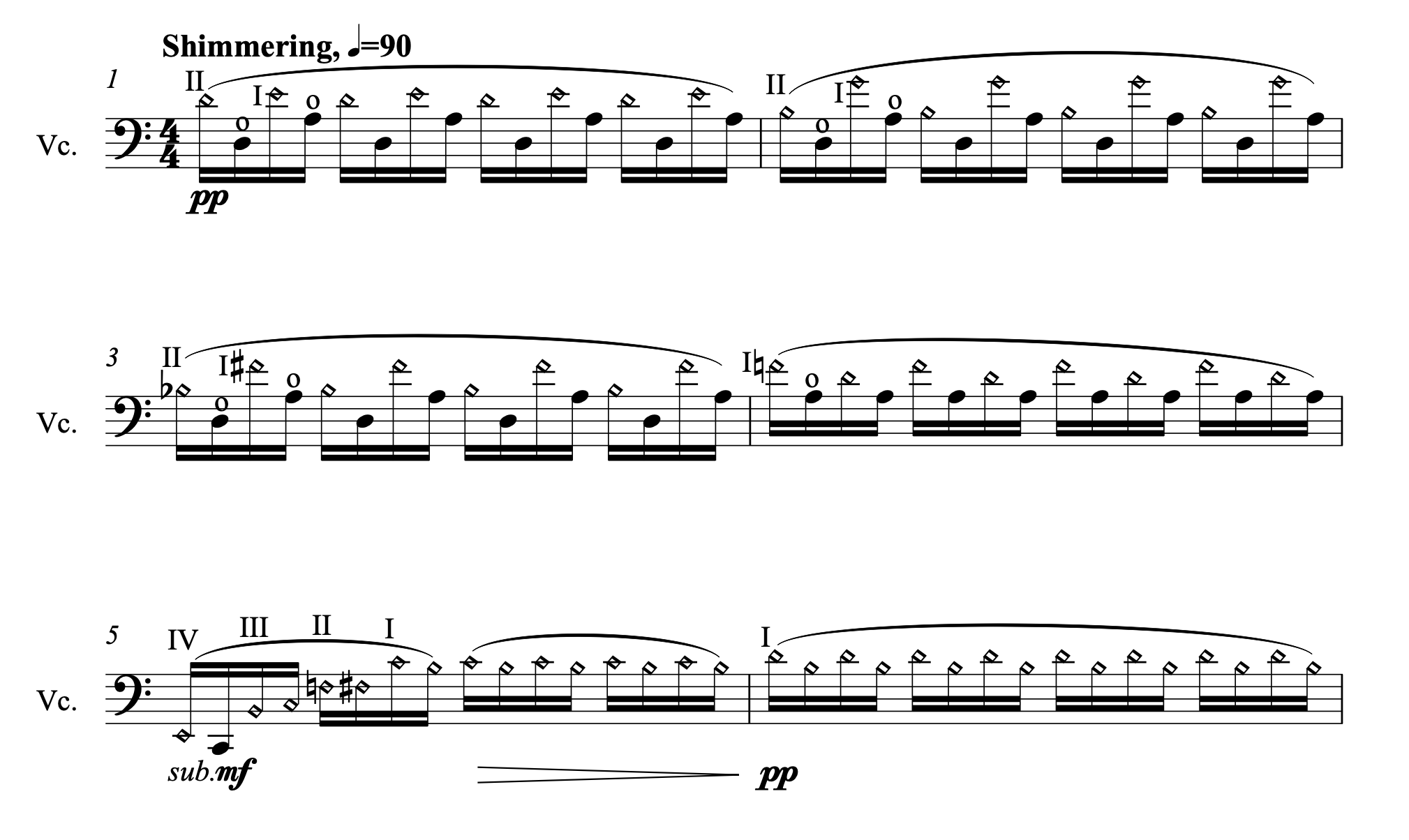 Image 1 of 1
Image 1 of 1


Variations on a Theme of Elgar
For solo cello.
Written for Arlen Hlusko.
What happens to our most cherished memories? By remembering them do they return us to a certain time and place? Can a piece of music transport us to this place? We remember how we felt: how our skin tingled, how our heart beat a little faster, how our breath felt cool in our throat. We remember how the walls looked: the wood’s lacquer, the reflection of light off its sheen, the intricate patterns of trim and wainscoting connecting and crossing over itself. The way the music sounded in that space: the way it bounced off walls and pulled us all in, a little bit closer but like we were the ones floating above everything and not the sound itself, stagnant in the air. And most of all the overwhelming sense of interconnectedness to everyone and everything: the stars outside flowing inward, the trees’ limbs reaching down, the gleam of the moon on the new-fallen snow, everything becoming a part of us.
I asked Arlen to think of a piece of music that had a special significance for her. “The second movement of the Elgar string quartet,” was her immediate reply. Like memory, the theme from the second movement of Elgar’s string quartet becomes distorted, elongated, distant, painful, tender, through a set of variations in my composition for her. And, like memory, it becomes lost, obfuscated, hidden, twisted and turned into something else, something new. Will it be remembered again or will it be forgotten?
As you listen I encourage you to think of something sacred to you: a memory you hold dear to your heart. What is it that makes you remember? Can you return to this place or, like the wind, the harder you try and hold on to it, does it simply slip through your grasp?
For solo cello.
Written for Arlen Hlusko.
What happens to our most cherished memories? By remembering them do they return us to a certain time and place? Can a piece of music transport us to this place? We remember how we felt: how our skin tingled, how our heart beat a little faster, how our breath felt cool in our throat. We remember how the walls looked: the wood’s lacquer, the reflection of light off its sheen, the intricate patterns of trim and wainscoting connecting and crossing over itself. The way the music sounded in that space: the way it bounced off walls and pulled us all in, a little bit closer but like we were the ones floating above everything and not the sound itself, stagnant in the air. And most of all the overwhelming sense of interconnectedness to everyone and everything: the stars outside flowing inward, the trees’ limbs reaching down, the gleam of the moon on the new-fallen snow, everything becoming a part of us.
I asked Arlen to think of a piece of music that had a special significance for her. “The second movement of the Elgar string quartet,” was her immediate reply. Like memory, the theme from the second movement of Elgar’s string quartet becomes distorted, elongated, distant, painful, tender, through a set of variations in my composition for her. And, like memory, it becomes lost, obfuscated, hidden, twisted and turned into something else, something new. Will it be remembered again or will it be forgotten?
As you listen I encourage you to think of something sacred to you: a memory you hold dear to your heart. What is it that makes you remember? Can you return to this place or, like the wind, the harder you try and hold on to it, does it simply slip through your grasp?